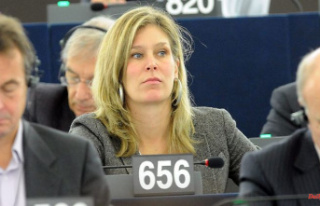Inflation continues to rise. For the second month in a row, a record value was reached in Saxony-Anhalt. According to economic experts, there is still no end in sight.
Halle (dpa/sa) - Consumer prices in Saxony-Anhalt have reached a new peak. In September, inflation in the country rose by 10.7 percent compared to the same month last year, as reported by the State Statistical Office in Halle on Thursday. The previous record value from August was thus exceeded by a whopping 2.1 percentage points. The main driver of the price increases was the expiry of government relief. For example, due to the omission of the 9-euro ticket, prices rose drastically again.
There were extreme price jumps in several spending areas. According to the statistics authority, the prices for household energy stood out in particular, rising by 60 percent compared to September 2021. Prices for fuels such as petrol and diesel increased by around 30 percent. Grocery and non-alcoholic beverages were about 17.7 percent more expensive on average. Within food, edible oils and fats increased the most with almost 50 percent.
In view of the energy crisis and higher prices, the leading economic research institutes are expecting a significant loss of purchasing power in private households. The situation will even worsen in the coming year, since the highest consumer prices for energy are not expected until mid-2023, said economic researcher Torsten Schmidt from the Leibniz Institute for Economic Research on Thursday in Berlin. Private consumption will not recover until 2024.
As has already been announced, the institutes are forecasting a recession for Germany in their autumn report. The German economy will shrink for three quarters in a row. For 2022 as a whole, the experts still expect small economic growth of 1.4 percent due to the better first half of the year, for 2023 they then predict a decline in economic output by 0.4 percent.
However, the institutes are not currently expecting a gas shortage. "On average, no gas shortage is to be expected in Germany in the coming winter," said Schmidt. However, the supply situation remains extremely tense.












